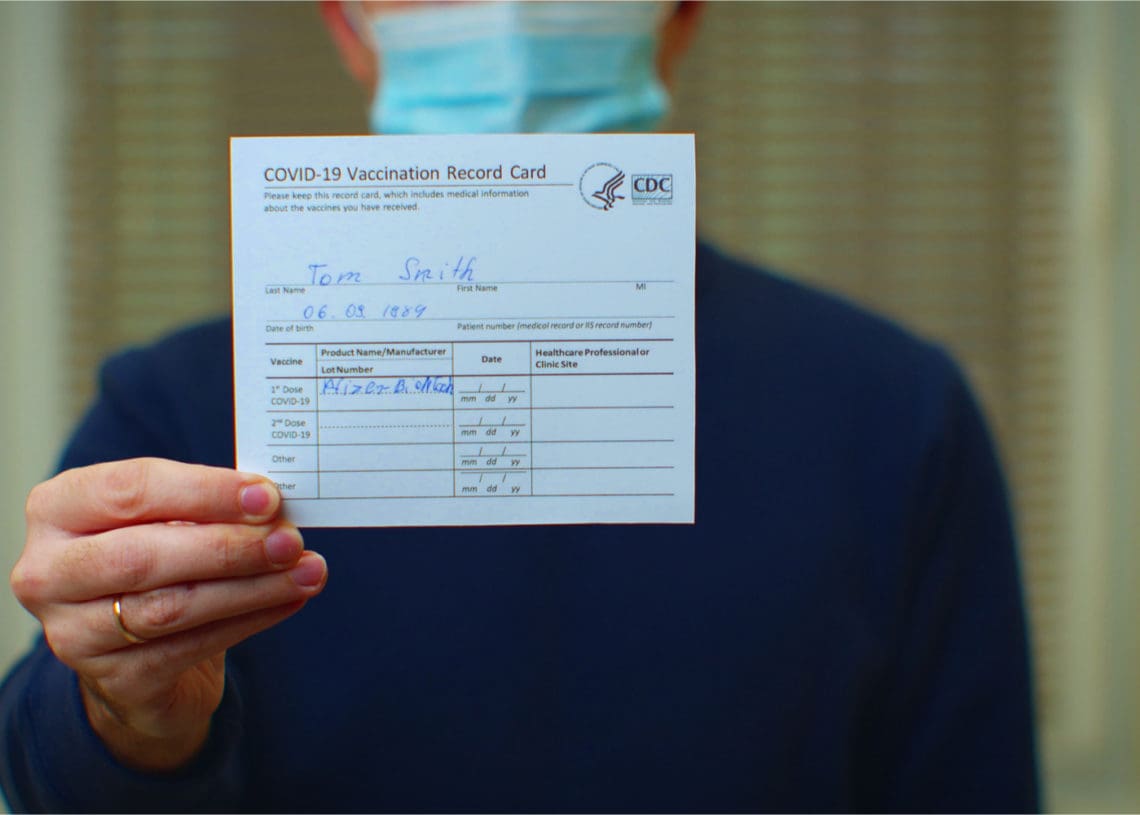When it comes to COVID-19 and HIPAA, many misunderstand the law’s scope and purview, especially in a professional setting. Privacy attorney K Royal dispels common misconceptions below.
The Health Insurance Portability and Accountability Act (HIPAA) protects all of your health information, right? So employers are not allowed to ask questions related to your COVID-19 status or vaccinations? Neither statement is true.
Employers should be conscious that they are collecting health information on employees if they are screening them for COVID-19 now or for reopening at some point in the future. Yes, health information will be collected, but in most cases involving COVID-19 and HIPAA (along with its subsequent amendments), the law does not apply.
What? That's true insanity. An employer has ZERO right to demand proof of vaccination from its employees. HIPAA and ADA violations.
— Luisito (@crypto_passion) April 28, 2021
HIPAA seems to be a simple law — health data is protected — although it’s not clear to most employees what that level of protection includes.
HIPAA Does Not Cover the Health Data Employers Collect on Employees Related to COVID-19
HIPAA applies to health care providers, insurers and health information clearinghouses and their business associates. Most employers are usually none of these — or at least none of these as it pertains to their own employees. You should absolutely treat the information confidentially, but HIPAA does not generally apply. There are, of course, some exceptions. Here are some examples:
I am required to be at work in person unless I or someone in my household has COVID-19. My employer wants a copy of my husband’s health record to prove he has COVID-19 in order to permit me to work at home. This is a HIPAA violation, right?
- Answer: This is not a HIPAA violation, because HIPAA does not apply to your employer asking these questions.
- Recommendation: Employers should not make a copy of these records. Sure, have someone on HR look at it, note that it was shown, and let that be all. If employers insist on copying it anyway, black out everything on there that is irrelevant, such as DOB, medical record number, etc. Employers need to store these copies securely and retain them for the minimum time necessary.
Is my employer allowed to ask for my COVID-19 vaccination card?
- Answer: Yes, it can ask, but if you are not vaccinated, the company cannot ask you why not, because that might violate other federal laws.
- Recommendation: Employers should read this guidance from the Equal Employment Opportunity Commission titled “What You Should Know About COVID-19 and the ADA, the Rehabilitation Act, and Other EEO Laws,” along with this guidance from the Department of Health and Human Services, titled “If my employer requires proof of my COVID-19 vaccination status, does that violate my rights under HIPAA?”
My employer called my doctor and asked if I was vaccinated or had COVID. Is that a violation of HIPAA?
- Answer: Yes … if the doctor gave them the information. Your employer asking for it is not necessarily a HIPAA violation, but it is a violation of other laws and the company should not ask.
- Recommendation: Your health information is protected with your health care provider (and your insurance company), and unless you signed a form authorizing your provider to release that information, it is illegal unless there is an emergency situation — which would be incredibly unusual with COVID-19 and your employer.
I applied for a job and was sent for a pre-employment health physical. My doctor asked if I had been infected or had the COVID-19 vaccine and, of course, I answered. But then she told my employer that information. Does that violate HIPAA?
- Answer: Yes, your health information is protected with any doctor that is covered by HIPAA. Your doctor should not release any information in a pre-employment health physical other than whether or not you can perform the critical functions of the job with or without disability accommodations.
- Recommendation: Employers should make sure that they do not ask for this information from health care providers and if a provider includes this information on the form, redact it and make sure it is not in your records. Employers should also inform the doctors not to provide this information. It could also be a violation for the doctor under other laws.
HIPAA May Apply to Some Self-Insured Health Plans
Some employers are self-insured. When it comes to the insured part of the company, these employers are covered entities under HIPAA because they are basically considered insurance providers. There are several ways to operate self-insured plans, such as using a third party to manage the benefits so that the employer is completely hands-off. The employer is fully self-insured and either does or does not have access to protected health information.
Self-insured employers should be aware of their responsibilities under HIPAA (and if not, please seek counsel). But when it comes to COVID-19 screening, employers are not health care providers screening employees or visitors.
Employers must keep the information away from the insurance side of their activities, as well as from the personnel/HR activities. The COVID-19 screening should be its own activity with separate records.
The Bottom Line
HIPAA does not protect all health information. It only protects health information that falls under the regulation specifically as it applies to covered entities (such as doctors or insurers) and their business associates (vendors who are hired to perform services for the covered entities and need the health information to do so, like transcriptionists). Once the protected health information (PHI) leaves those entities, such as when it is provided to you or someone you ask them to give it to, like your employer, mom or babysitter, it is no longer protected under HIPAA. If your mom was to publish that information in a magazine, there would be no HIPAA violation.
Companies that are not subject to HIPAA (that is, most employers) often collect health information – typically more than they should from a liability perspective. But it is not covered under HIPAA. They must protect it, keep it separate from your other records, ensure that others don’t access it and not make any employment decisions based on it.
Other Regulations That May Apply
Beyond COVID-19 and HIPAA, there is further guidance available from the Equal Employment Opportunity Commission and the Occupational Safety and Health Administration (OSHA). Employers should review the guidance available to make sure they avoid discrimination, honor requests related to disabilities and maintain standards and records required under OSHA.
Employers should also follow relevant state and local laws that might apply to them.











